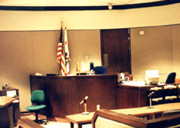|
|
|
Court orders White House to preserve e-mail backups
Court Watch |
2007/11/13 07:18
|
A federal district court judge issued a temporary restraining order today requiring the Bush administration to safeguard backup media files that may contain copies of millions of White House e-mail messages — the subject of ongoing litigation.
Citizens for Responsibility and Ethics in Washington (CREW), a watchdog group, requested the order last month. It and George Washington University’s National Security Archive are suing the Bush administration for allegedly failing to “recover, restore and preserve certain electronic communications created and/or received within the White House.”
The complaint alleges that since 2003 the Bush administration has illegally discarded about 5 million e-mail messages that it was required to keep under records laws. The plaintiffs are demanding that the missing messages be restored using the backup media files and that the administration implement a new “adequate electronic management system.”
The groups’ lawsuits against the Executive Office of the President, the White House’s Office of Administration, and the National Archives and Records Administration have now been consolidated.
CREW filed for the temporary restraining order after the group said it did not receive adequate assurances from the White House that the backups were being protected.
The decision by the U.S. District Court for the District of Columbia confirms a magistrate’s earlier recommendation that the order be issued. Under the temporary restraining order, the defendants are required to safeguard all media in their possession as of Nov. 12.
But because the order is not retroactive, it does not clarify what has happened to the backups since 2003, said Meredith Fuchs, the National Security Archive’s general counsel. Concerns that the backups could have been erased in the past four years -- perhaps as part of normal business processes -- coupled with the limited time remaining for the Bush administration prompted the plaintiffs to ask for an expedited discovery process, she said.
The Bush administration formally opposed the early discovery request Nov. 9, she said. |
|
|
|
|
|
|
Class action or a representative action is a form of lawsuit in which a large group of people collectively bring a claim to court and/or in which a class of defendants is being sued. This form of collective lawsuit originated in the United States and is still predominantly a U.S. phenomenon, at least the U.S. variant of it. In the United States federal courts, class actions are governed by Federal Rules of Civil Procedure Rule. Since 1938, many states have adopted rules similar to the FRCP. However, some states like California have civil procedure systems which deviate significantly from the federal rules; the California Codes provide for four separate types of class actions. As a result, there are two separate treatises devoted solely to the complex topic of California class actions. Some states, such as Virginia, do not provide for any class actions, while others, such as New York, limit the types of claims that may be brought as class actions. They can construct your law firm a brand new website and help you redesign your existing law firm site to secure your place in the internet. |
Law Firm Directory
|
|





